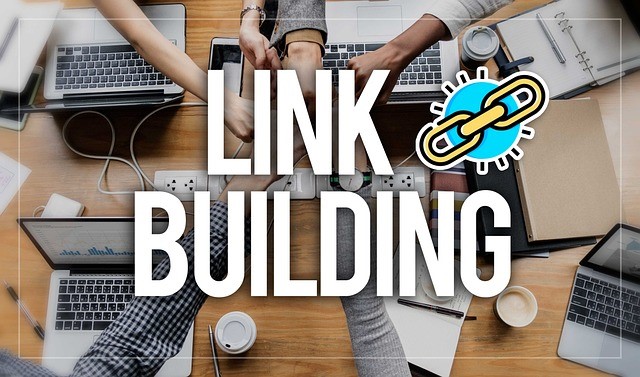Off-Page SEO: Building High-Quality Backlinks
Search engine optimization (SEO) is a multifaceted discipline, and off-page SEO plays a crucial role in improving your website’s search engine rankings. While on-page SEO focuses on optimizing elements within your website, off-page SEO concentrates on activities conducted outside your website to build its authority and reputation. A cornerstone of off-page SEO is building high-quality backlinks, which act as votes of confidence from other websites, signaling to search engines that your content is valuable and trustworthy. This comprehensive guide delves into the world of off-page SEO and provides actionable strategies for building high-quality backlinks that boost your website’s visibility.
The Power of External Validation
In the vast digital landscape, search engines like Google rely on various signals to determine the relevance and authority of websites. While on-page optimization, such as keyword optimization and content quality, is essential, it’s the external validation from other reputable websites that truly elevates your online presence. This validation comes in the form of backlinks—links from external websites pointing to your website.
Think of backlinks as recommendations. If numerous authoritative websites recommend your content by linking to it, search engines interpret this as a strong indication that your website offers valuable information. This, in turn, can lead to higher search engine rankings, increased organic traffic, and greater online visibility. This blog post will explore proven link building strategies and best practices for off-page SEO, empowering you to build a robust backlink profile.
What is Off-Page SEO?
Off-page SEO encompasses all the activities you perform outside your website to improve its search engine rankings. It’s about building your website’s reputation and authority in the eyes of search engines. While backlinks are a primary focus, other off-page factors include:
Social media marketing: Building a strong social media presence can indirectly influence SEO by driving traffic and increasing brand visibility.
Brand mentions: Unlinked mentions of your brand or website can also contribute to brand awareness and online reputation.
Online reviews: Positive reviews on platforms like Google My Business and Yelp can enhance your local SEO and build trust.
Forum participation: Engaging in relevant online forums can drive targeted traffic and establish you as an expert in your field.
However, backlink building remains the most impactful off-page SEO tactic.
Why Are High-Quality Backlinks Important?
Not all backlinks are created equal. Search engines prioritize high-quality backlinks from reputable and relevant websites. These backlinks signal trust, authority, and relevance, contributing significantly to your website’s search engine rankings. Here’s why they matter:
- Improved search engine rankings: High-quality backlinks are a strong ranking factor, helping your website rank higher in search results for relevant keywords.
- Increased referral traffic: Backlinks can drive targeted traffic to your website from other websites, exposing your content to a wider audience.
- Enhanced domain authority: A strong backlink profile can boost your website’s domain authority, a metric that reflects the overall strength and credibility of your website.
- Faster indexing: Backlinks can help search engines discover and index your website’s content more quickly.
What Makes a Backlink High-Quality?
Several factors determine the quality of a backlink:
Relevance: The linking website should be relevant to your industry or niche. A backlink from a website about gardening to a website about software is less valuable than a backlink from a website about technology.
Authority: The linking website should have a high domain authority, indicating its credibility and trustworthiness.
Anchor text: The anchor text (the clickable text of the link) should be relevant to the linked page’s content. Natural and varied anchor text is preferred over exact match keywords.
Context: The backlink should be placed within relevant and high-quality content on the linking website.
Follow/Nofollow: “Follow” links pass link equity (ranking power) to the linked website, while “nofollow” links do not. While “follow” links are more valuable for SEO, a natural mix of both is important.
Placement: Backlinks placed within the main content of a page are generally more valuable than those placed in sidebars or footers.
Effective Link Building Strategies
Now, let’s explore some effective link building strategies:
- Guest Blogging: Writing guest posts for relevant websites in your industry is a great way to earn high-quality backlinks and reach a new audience. Focus on providing valuable content that benefits the host website’s readers.
- Content Marketing: Creating high-quality, informative, and engaging content is the foundation of successful link building. Shareable content naturally attracts backlinks from other websites.
- Broken Link Building: Find broken links on relevant websites and offer your own content as a replacement. This is a win-win situation, as you get a backlink, and the other website fixes a broken link.
- Resource Link Building: Create valuable resources, such as guides, infographics, or tools, that other websites will want to link to.
- Competitor Analysis: Analyze your competitors’ backlink profiles to identify potential link building opportunities. Use tools like Ahrefs or SEMrush to see where they are getting their backlinks.
- Outreach: Reach out to relevant websites and bloggers to introduce your content and ask for a backlink. Personalize your outreach emails and focus on providing value to the recipient.
- Directory Submissions: Submit your website to relevant online directories. While not as impactful as other strategies, it can still contribute to building your online presence.
- Local Citations: For local businesses, building citations on relevant online directories and platforms is crucial for local SEO.
- Public Relations and Media Outreach: Getting your brand mentioned in online publications and news websites can generate high-quality backlinks and increase brand awareness.
Link Building Don’ts: Avoiding Penalties
While building backlinks is essential, it’s crucial to avoid black-hat SEO tactics that can result in penalties from search engines. Here are some practices to avoid:
Buying backlinks: Purchasing backlinks is against Google’s guidelines and can lead to severe penalties.
Participating in link schemes: Avoid participating in link exchanges or other schemes designed to artificially inflate your backlink profile.
Using automated link building tools: These tools often generate low-quality backlinks that can harm your website’s reputation.
Over-optimizing anchor text: Using exact match keywords excessively in your anchor text can be seen as manipulative.
Getting backlinks from irrelevant or spammy websites: Backlinks from low-quality websites can negatively impact your search engine rankings.
Measuring and Analyzing Your Backlink Profile
It’s essential to track and analyze your backlink profile to understand the effectiveness of your link building efforts. Use tools like Google Search Console, Ahrefs, or SEMrush to:
Monitor your backlink profile: Track the number and quality of your backlinks.
Identify toxic backlinks: Disavow any low-quality or spammy backlinks that could harm your website.
Analyze your competitors’ backlink profiles: Identify new link building opportunities.
Track your keyword rankings: Monitor how your backlink building efforts are impacting your search engine rankings.
Real-World Examples of Effective Link Building
Creating original research: A marketing agency conducted original research on social media trends and published a comprehensive report. This report attracted backlinks from numerous industry blogs and news websites.
Developing a free tool: A software company developed a free online tool that helped users with a specific task. This tool attracted backlinks from websites that reviewed and recommended helpful resources.
Participating in industry events: A local business sponsored a relevant industry event and received a backlink from the event’s website.
On-Page SEO: The Ultimate Guide
Top 10 Free Online Tutorial Websites for Beginners: Unlock Your Potential
Building a Sustainable Backlink Strategy
Building high-quality backlinks is a long-term process that requires consistent effort and a strategic approach. By focusing on creating valuable content, building relationships with other website owners, and avoiding black-hat SEO tactics, you can build a robust backlink profile that boosts your website’s search engine rankings and drives organic traffic. Remember that quality trumps quantity when it comes to backlinks. Focus on earning backlinks from reputable and relevant websites, and you’ll be well on your way to achieving sustainable SEO success. By adhering to these best practices for off-page SEO and link building strategies, you can significantly improve your website’s visibility and establish a strong online presence.






